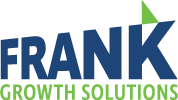The more I do social enterprise development work the more I learn about the many impacts we can create!
There is no hard and fast accepted definition of a social enterprise, but for my work in the nonprofit space I like this one from The Social Enterprise Council of Canada (www.secouncil.ca):
‘Social enterprises are community-based businesses that sell goods or services in the marketplace to achieve a social, cultural and/or environmental purpose; they reinvest their profits to maximize their social mission.’
So, as a business, a social enterprise sells goods or services to customers which generates income from sales, and as a non-profit it achieves social, cultural or environmental goals.
My work never overlooks the non-revenue impacts (the social, cultural or environmental stuff), but I think I’ve been in the habit of looking at the ‘direct’ revenue through the sale of goods and services.
There is a world of indirect revenue that may exist merely from having the social enterprise, and below are two examples I’d like to share with you.
-
The first involves a cafe created to earn revenue as well as expand the opportunities to further the mission of the charity. The mission of the charity is to share the gifts of people with intellectual disabilities with the general public. The cafe does that for sure! And, what it also does is increase the visibility of the parent charity, thus increasing all fundraising efforts – their annual fundraising walk proceeds went up by over 40% in the first year; donors are more willing to donate as now they can see the work that their dollars do – there is better engagement right across the board, and better engagement means more support.
-
The second example, again in the disability serving sector, involves an organization that provides day programming and homes for people with intellectual disabilities. Here the social enterprise is a ‘doggy day-care’ where the revenue generated was intended to come from pet owners who wanted their dogs looked after for the day. This does happen, although not on as large a scale as was intended. The social part of this enterprise is the therapeutic value of people and pets. Research has proven time and time again that people interacting with pets offers tremendous value, and there is no shortage of that impact here. What is interesting, is the increase in popularity of the centre itself since offering this additional program – referrals to the centre doubled, participants in the program wanted to spend more time there, and staff, board, and management are all delighted with the ‘ripple effect’ of this social enterprise.
So, just measuring direct revenue from the sale of goods and services of the social enterprise, the typical best practice, falls short in terms of the actual financial benefits that can be achieved.
And now, I’d like to introduce you to …
qathet Inclusive Manufacturing Pilot Project (qIM) began out of a need to create more inclusive employment opportunities that provide empowering experiences for individuals, organizations and businesses. Instead of creating work opportunities for people with developmental disabilities who have been excluded from the labour market, the project takes a social enterprise designed to accommodate the diverse needs of people with developmental disabilities and makes it inclusive of anyone interested in working in an inclusive setting.
Inclusion means everyone is welcome, and everyone gets an opportunity to succeed and earn a living.
The project is both a research project and a pilot project for a social enterprise that takes recycled materials such as wood, wax and paper and turns them into a long-burning fire starter called OneLight. The OneLight fire starter replaces the need for kindling, is affordably priced and is made by hand in an inclusive employment setting.
The research is focused on the experience of research participants which include employees, supervisors, management and an Advisory Committee set up by the host organization inclusion Powell River Society and Powell River Model Community Project.
Already we are witnessing the life-changing impacts of inclusive employment, especially in the context of a global pandemic when everyone has been existing in extreme isolation. Employees are reporting they are using their earnings to improve their lives and those of their family. One employee purchased a phone, while another is saving for an e-bike to have better access to transportation, and for some this is their first job and OneLight is opening up a door to employment that did not exist for them before.
The research is shared in three reports available to the public at qimproject.com



